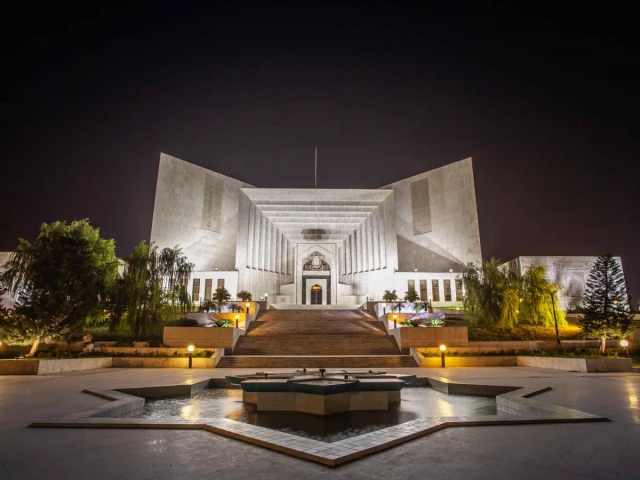ISLAMABAD:
Chief Justice of Pakistan (CJP) Yahya Afridi has proposed amendments to the Code of Conduct for Judges to establish an institutional mechanism to respond to “foreign influences”.
The CJP on Friday chaired the 55th meeting of the National Judicial (Policy Making) Committee (NJPMC), convened at the Supreme Court of Pakistan. The committee deliberated on key policy issues, while reviewing the status of implementation of decisions taken at its 54th meeting.
The Chief Justice of the Federal Shariah Court and the Chief Justices of all high courts were present in the meeting. Attorney General of Pakistan (AGP) Mansoor Awan also attended the session by special invitation.
According to a detailed statement issued by the SC, the CJP recognized the efforts of all high courts to notify standard operating procedures (SOPs) providing a mechanism for institutional response to foreign influence on judges at the district level. He observed that similar guarantees are necessary to protect the independence and integrity of judges of the higher judiciary.
In this regard, he informed the committee that he has proposed amendments to the Code of Conduct for Judges aimed at establishing an institutional mechanism to respond to foreign influences.
The proposed amendments also include additions which were approved by the Supreme Judicial Council (SJC) in 1967 and 2003 and circulated for compliance at the relevant time, but which were not incorporated in the notified Code of Conduct.
The panel also deliberated on replacing an article relating to judges’ exposure to the media. After detailed deliberations, the Chief Justices of the High Courts unanimously accepted and approved the proposed amendments, with necessary modifications and suggestions.
“They insisted that the President, in his capacity as president, could submit the matter to the Supreme Judicial Council (SJC) for review and approval.”
He unanimously reiterated his determination to strengthen institutional capacities, accelerate access to justice and guarantee effective and efficient justice.
He also stressed the importance of maintaining institutional coherence among all levels of the justice system in order to improve accessibility, efficiency and integrity of justice delivery.
In opening the proceedings, the CJP invited the AGP to inform the commission of the progress made in developing a coordinated institutional response to cases of enforced disappearances.
He informed the forum that the issue of enforced disappearances has almost been resolved with the recent amendment of Section 11EEEE of the Anti-Terrorism Act, 1997, requiring the presentation of a detained person before a magistrate within twenty-four hours.
He assured the panel that a comprehensive mechanism to address complaints of non-compliance with this legal requirement is being considered by the government, which will be placed before the committee at its next meeting.
“The committee appreciated the AGP’s assurance,” he said.
The meeting concluded with appreciation of the sustained efforts of all the high courts, the Ministry of Law and Justice and the Law and Justice Commission Secretariat for their valuable contributions towards strengthening the administration of justice, promoting institutional coherence and enhancing public confidence in the judiciary.




